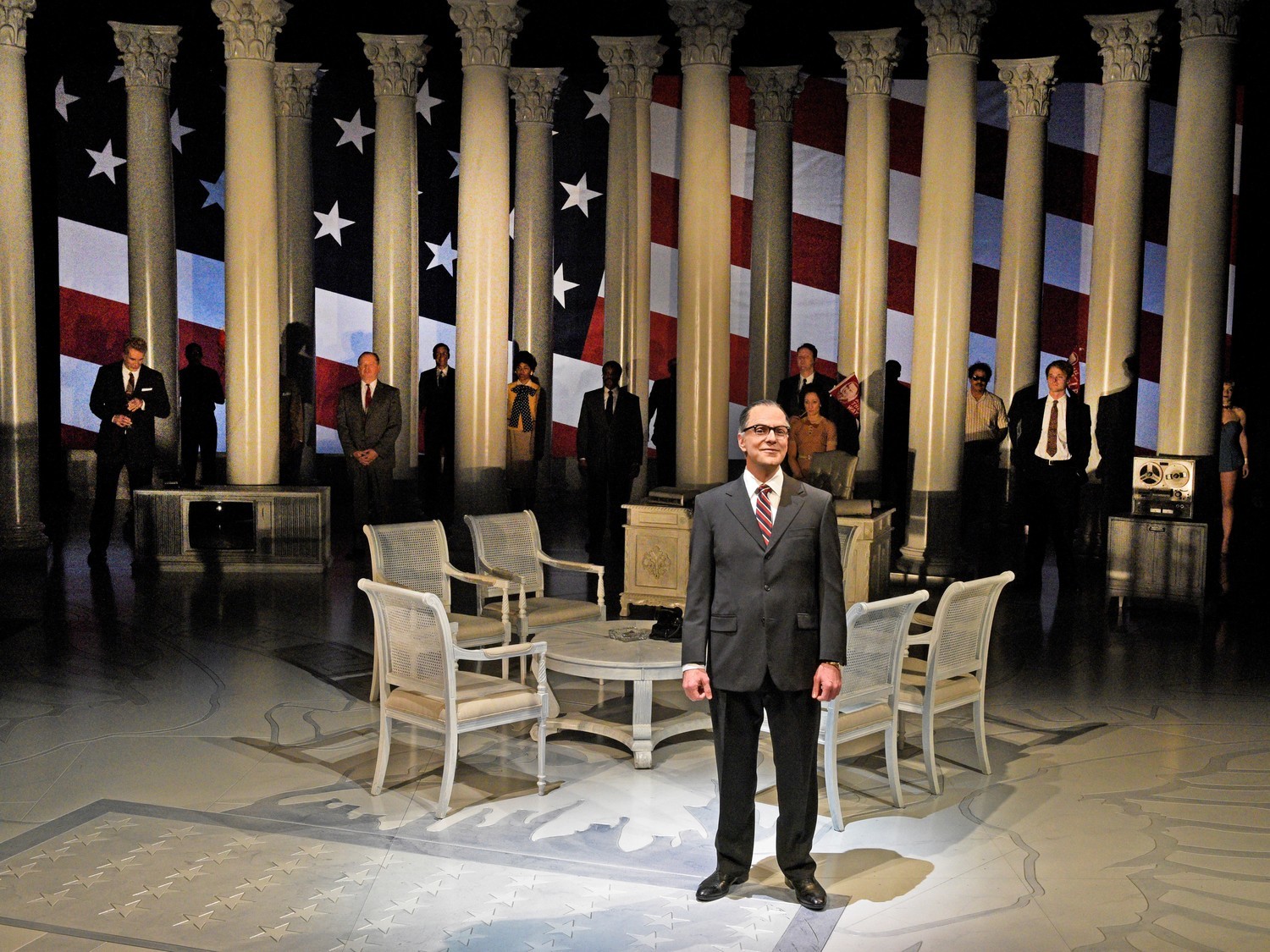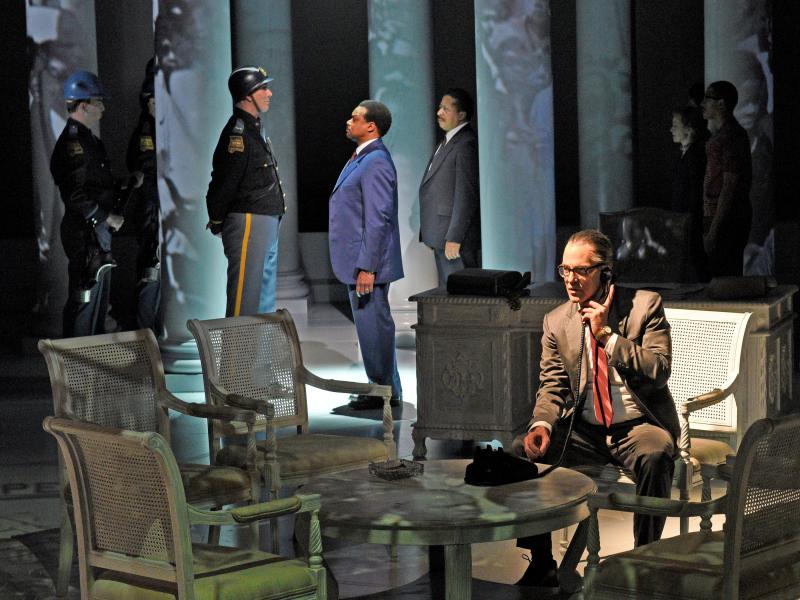Review: THE GREAT SOCIETY Shines at Dallas Theater Center

Photo by Karen Almond
It is the story of a brilliant leader, masterful negotiator, and egotistical political figure who presided over the United States during a period of incredible transformation. In the second of a two-part series of plays on Lyndon B. Johnson, playwright Robert Schenkkan leads the audience through a fast-paced drama that merges true historical language and events with creative storytelling techniques that force the audience to consider history from a new perspective.
Under the direction of Kevin Moriarty, each of the leading players manage to balance the greatness of historically revered individuals with the human flaws that inevitably jeopardize their movements. It is this balance that keeps the audience hanging on every word of the show.
As Rev. Martin Luther King, Jr., Shawn Hamilton exudes the strength and conviction fitting for his character, while also allowing a glimpse into the insecurities and uncertainties that come with leading a revolutionary movement. Jay Sullivan, in his portrayal of Senator Robert F. Kennedy, convinces the audience of his moral superiority, while also making them uncertain of whether he is truly acting in service to his nation or in service to his own interests. And from the first words spoken by Brandon Potter (Lyndon B. Johnson), viewers are unsure whether to credit the character for the lasting changes created by his social programs or despise him for his unwillingness to admit defeat in Vietnam. Whatever the choice made about Potter's character, it is clear that the actor has talent to burn. He skilled portrayal of the former president immediately plunges the audience into the center of the action. He wins favor as he breaks down his opponents with witty comments, strongly held beliefs, and a sternly pointed finger that any would be wise to avoid.

Photo by Karen Almond
The striking white on white set immediately creates an atmosphere of importance that is fitting for the Oval Office. Upstage, large white pillars in front of a giant projection of the American flag create a space for events portrayed beyond the walls of The White House. The entire arrangement is deceptively simple, with the pillars allowing for projections which lend further historical context to events unfolding onstage. And while the set and lighting are both brilliant, it is the music in this show that is the most memorable. Flawless acapella vocal performances by Tiana Kaye Johnson and Ace Anderson create a haunting tone for the events of the civil rights movement as they are portrayed on stage. Taken as a whole, the technical aspects of this show are flawless - and there is nothing to draw the audience's attention away from the incredible talent on the stage.
This show accomplishes what all good historical dramas attempt. It holds a mirror to the audience and forces them to assess current events in light of historical context. In a conversation with the playwright after the show, Schenkkan spoke about his intention for this show to provide a background for how our two-party system became divided and dysfunctional. The show successfully provides commentary on this and more. From topics of racial discrimination, community and police relationships, and war - it is impossible to leave this show without recognizing at least a few reflections of where our nation is today.
Don't miss your opportunity to see THE GREAT SOCIETY. It is an experience you won't soon forget. For tickets and showtimes, visit http://www.attpac.org/on-sale/2018/dallas-theater-centers-the-great-society/.
Reader Reviews

Videos
